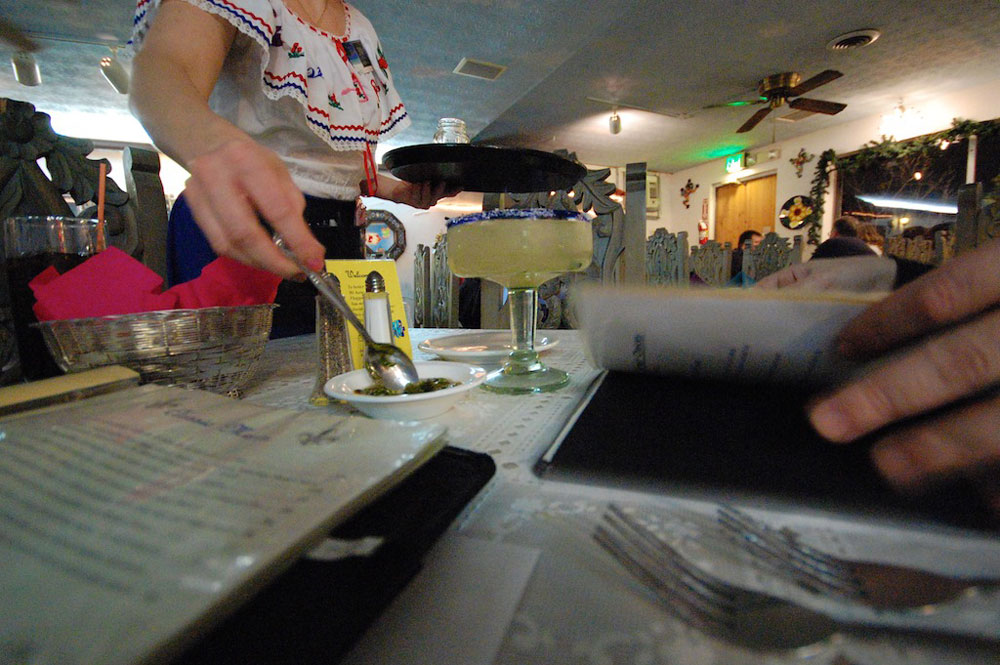
By Sam Pizzigati
McDonald’s workers in 15 U.S. cities recently staged a weeklong strike demanding a $15 hourly wage for every McDonald’s worker. McDonald’s resisted, pledging only to raise average wages to $13 an hour.
In the meantime, the profits keep rolling in. The fast-food giant registered $4.7 billion in 2020 earnings. CEO Chris Kempczinski personally pocketed $10.8 million last year, 1,189 times more than the $9,124 that went to the company’s median worker.
Executives at McDonald’s seem to think they can outlast the Fight for $15 campaign. More to the point, they think they know everything. Nothing happens at Mickey D’s without incredibly intensive market research: “Plan, test, feedback, tweak, repeat.” More hours may go into planning the launch of a new McDonald’s menu item than Ike marshaled planning the D-Day invasion.
All this planning has McDonald’s executives supremely confident about their business know-how. But, in fact, these execs do not know their business inside-out. They don’t know their workers.
Workers remain, for McDonald’s executive class, a disposable item. Why pay them decently? If some workers feel underpaid and overstressed, the McDonald’s corporate attitude has historically been “good riddance to them.” Turnover at McDonald’s was running at an annual rate of 150 percent before the pandemic.
The entire fast-food industry rests on a low-wage, high-turnover foundation. And at those rare moments — like this spring — when new workers seem harder to find, the industry starts expecting its politician pals to cut away at jobless benefits and force workers to take positions that don’t pay a living wage.
But if leaders were really doing their research, they’d learn very quickly that this makes no sense. Instead of treating workers as disposable and replaceable, businesses ought to be treating them as partners.
Who says? The Harvard Business Review, hardly a haven for anti-corporate sloganeering. Employee ownership, the journal concluded recently, “can reduce inequality and improve productivity.”
Thomas Dudley and Ethan Rouen reviewed a host of studies on enterprises where employees hold at least 30 percent of their company’s shares. These companies are more productive and grow faster than their counterparts, Dudley and Rouen found. Cooperatives are also less likely to go out of business.
 Enterprises with at least a 30-percent employee ownership share currently employ about 1.5 million U.S. workers, just under 1 percent of the nation’s total workforce. If we raise that number to 30 percent, Dudley and Rouen calculate, the bottom half of Americans would see their share of national wealth more than quadruple.
Enterprises with at least a 30-percent employee ownership share currently employ about 1.5 million U.S. workers, just under 1 percent of the nation’s total workforce. If we raise that number to 30 percent, Dudley and Rouen calculate, the bottom half of Americans would see their share of national wealth more than quadruple.
Elsewhere, enterprises with 100-percent employee ownership already exist. Spain’s Mondragon cooperatives, the New York Times noted earlier this year, have flourished since the 1950s. They aim “not to lavish dividends on shareholders or shower stock options on executives, but to preserve paychecks.”
At each of Mondragón’s 96 cooperative enterprises, executives make no more than six times what workers in the network’s Spanish co-ops make. In the United States, the typical rate runs well over 300 to 1.
We’re not talking artsy-crafty boutiques here. Mondragón co-ops, including one of Spain’s largest grocery chains, currently employ 70,000 people in the country.
Mondragón has had a particularly powerful impact on the Basque region in Spain, the network’s home base. By one standard measure, the Basque region currently ranks as one of the most egalitarian political areas on Earth.
“We want to transform our society,” Mondragón International president Josu Ugarte told me in a 2016 interview. “We want to have a more equal society.”
So do workers at McDonald’s.
![]()
Sam Pizzigati is a co-editor of Inequality.org and author of The Case for a Maximum Wage and The Rich Don’t Always Win.





























Mark says
Let’s make more robots. That will fix it.
Merrill S Shapiro says
So, “industry starts expecting its politician pals to cut away at jobless benefits and force workers to take positions that don’t pay a living wage.” I’d love to read further analysis of the connection between this fact and the battle against “Affordable Housing” here in Palm Coast. Is this, as well, an example of “politician pals” working to make sure that low wage earners (who, by the way, are perceived to vote for Democrats over Republicans) can’t get a break, but must live out their lives in “quiet desperation?”
Dennis C Rathsam says
How can U have affordable houses when 1 2×4 is ten bucks?
Erobot says
Employees can do what owners did. Work hard, save their money and then risk it in a business with no guarantees. Employees are not equal in this equation. Reminder to lefties: We are not all equal except under the law. In every other way, we are incredibly diverse and individualistic.
random says
Owners will have to continue to compete with the Gig economy, crying to politicians isn’t going to fix their problems.
Show Me The Money says
Most businesses cranked up over the past decade or so are born from someone else’s money, not their own. “Owners” are mere puppets for one percenters pulling the strings where profits over socioeconomic growth trumps all.
James M. Mejuto says
Well, it is unconscionable that CEO’s should make 300-1 salary inequity plus all perks.
Make no mistake . . . there are women CEO’s also. (No difference, they’re all corrupt!)
The future is quite a mix of fatal realities responding to Capitalism’s never ending appetite for more profits
at the costly expense of everyday workers and middle-class office personnel. (there is no difference!)
As time passes, workers will have no choice but to refuse to return to the workplace but it will be at a
costly expense they cannot afford.
This is all about greed, the amassing of great wealth beyond a normal person’s experience.
MikeM says
I remember when fast food was a teens job. It was incentive to stay in school and learn how to do something besides flipping burgers. The only career employee was the manager. Better skills meant better pay. Now it’s like a participation trophy. Even though all I know how to do is make hamburgers, I deserve higher pay. If you don’t like your job or your pay, move on to something else. Nobody owes you anything.
erobot says
Hate to be picky, but they don’t know HOW to make burgers, only how to take already prepared stuff and heat it up in foolproof gadgets and wrap it in wax paper. Everything about a fast food set up is designed to be used by people, many of whom can’t make change, in a mindless way.
A commenter above said it all. Those entry level jobs were starters for the young. Those interested in “moving on up” took measures to make themselves eligible for better paying jobs. Those that didn’t — well they stayed at entry level positions with entry level pay.
DP says
So they think $15.00 hr is going to make a better employee? He’ll they can’t get an order right to begin with. We have people with degrees that don’t make $ 15 hr. We have LEO”s, FF’s, EMS, that don’t make $ 15 hr.. So why do they think they deserve more?? Its time to get your ass”s back to work, and stop depending on the government, and everyone else. You want more, work for it.
Apt pupil says
Tell your cousins in the Appalachian Mountains that helped put your god, The Orange Blizzard OZ in office that. They’re the largest welfare recipients in the USA.
Steve says
It’s a moot point. It’s already been Voted on and passed. The Majority didn’t see it your way. The antiquated thought process of the Boomers 70s. I got mine F everyone else. Once again it shows how out of touch that Generation is. You cant build a House without a Foundation .